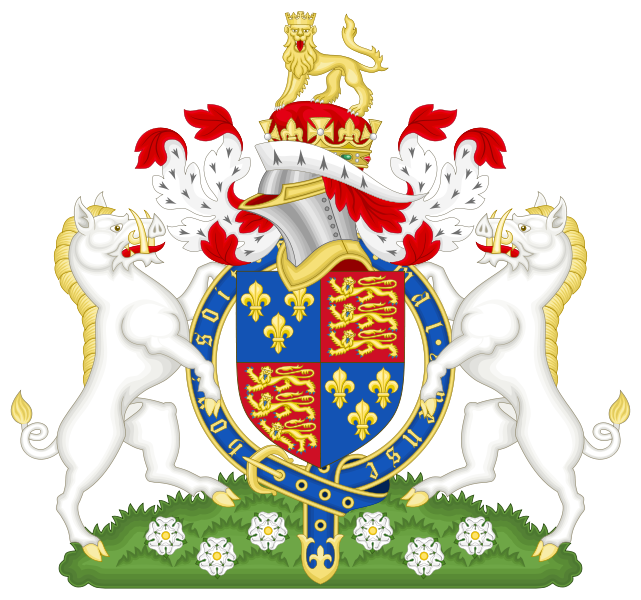
Have we swung too far the other way?
Richard III has swung from being the deformed vilified monster in Shakespeare to, in some circles, a martyr of the highest regard. Today debates over the ancient king’s life, and even his resting place, can create as tense an atmosphere as exchanges about politics at a dinner party.
As the underdog of British history, Richard III discussions can bring out cutting retorts, silencing comments, and even warnings from FaceBook group moderators to be respectful. Is there another historical figure quite as polarizing as Richard III? Richard III fragments the relatively small communities of medieval history lovers. It seems when it comes to Richard III, there is no middle ground. Why is that?
At one time, I was a die-hard, rooting-for-the-underdog, believer in Richard III’s innocence. After all, why would Richard kill the princes when he had Clarence’s legitimate son under his roof and didn’t do away with him? Who had better motive than the holier-than-thou Margaret Beaufort? To me, it was an open and shut case: Richard III did not kill the Princes in the Tower. Richard’s problem was he simply lacked a good press agent.
Over the last few years, however, doubt has crept in. There’s one thing reading about late medieval history has taught me: no medieval noble was “nice.” Fifteenth-century nobles lied, stole, and murdered their way to the top. At the most basic level, to be a medieval king or noble, you had to administer justice. Often this meant sentencing people to painful, somewhat creative, symbolic deaths. At a minimum, nobles had to be comfortable with killing people in battle. Ritualized hunting, the descriptions of which would turn your stomach, was their leisure pursuit.
Medieval nobles are nothing like you and me, and we shouldn’t forget this fact. I have yet to read of a medieval noble that I would want as a neighbor. Sure, I might want to go for a beer with some of them one night – God knows they’d be interesting – but I’d keep that dagger on my belt very close at hand and sit with my back to the wall.
Warwick was accused and likely guilty of piracy. Piracy! In the middle ages, pirates killed everyone on-board the ships they intercepted. So, basically, piracy meant killing people for no higher purpose than gathering loot. Clarence committed judicial homicide. The Stanleys? Well, their loyalty was for sale. At decisive battles, they would hold back their forces, switch to the winning side, and then come galloping in at the last minute to ingratiate themselves with the winning king. This wasn’t survival; it was opportunism. Even the women weren’t particularly nice. Cecily Neville was proud and haughty. Elizabeth Woodville could be vindictive and manipulative. Margaret of Anjou hired Scottish mercenaries and agreed to pay them by letting them loot and pillage English towns. And, Edward IV, my favorite figure of them all? Well, he presided over the bloodiest battle in English history just so he could sit on the throne. Narcissism wasn’t a dirty word.
So, all of this brings us back around to Richard III. Consistent with his peers, Richard III was not a nice person. It is quite possible he didn’t kill the princes in the tower. But, over stating his goodness by exaggerating traits in his character, is not the way to do it.
The Richard III Society has sponsored and generated tremendous amounts of interest in reexamining the life of the eponymous king. If nothing else, research into Richard’s life has led to greater insight into the role of propaganda in our view of events. But, as a member of the Richard III Society, I have to wonder if in our efforts to exonerate him, we have swung too far the other way?
Are we so eager to exonerate Richard III that we inadvertently canonize him?
Does Richard III evoke another emotion in us that has nothing to do with the history and everything to do with unconscious emotional reactions? Do we defend Richard the way we might defend a child picked upon in the playground? Is Richard the counterculture hero – the one whom a victorious establishment unfairly tarnished?
Arguably, these emotions cause us – both the pro- and anti-Richard camps – to engage in categorical thinking. Richard is either evil or saintly – when in reality he was probably neither. We end up debating each other over the nuances of scraps of evidence rather than seeking new sources.
Regardless of what you think of John Ashdown-Hill’s arguments, he was right in his interview when he said “To my mind the way forward for all historians is to try to find NEW evidence – of whatever kind.” Accepting the medieval king was a ruthless man in a ruthless age may pave the way forward for those hoping to exonerate him, those seeking the truth, and those wondering if the two are mutually exclusive.
Read more Richard III week articles in History.
Jamie Adair is a Boston-based writer who loves the Wars of the Roses and medieval history. She has a degree in History and a degree in Rhetoric and Professional Writing.
History Behind Game of Thrones Website
